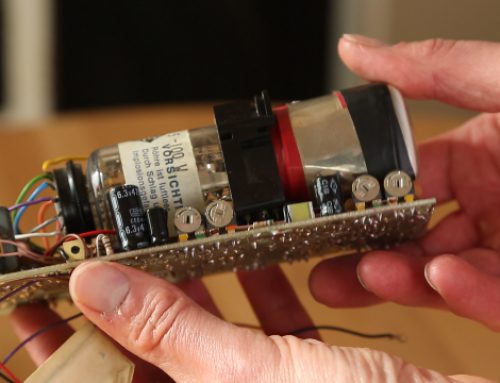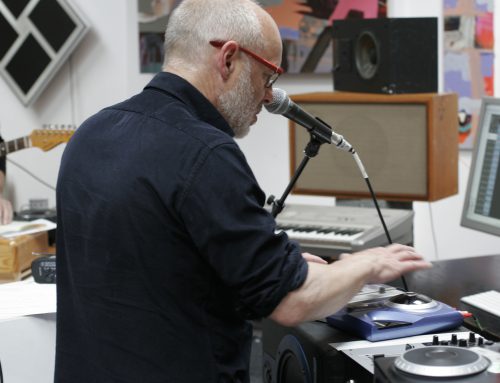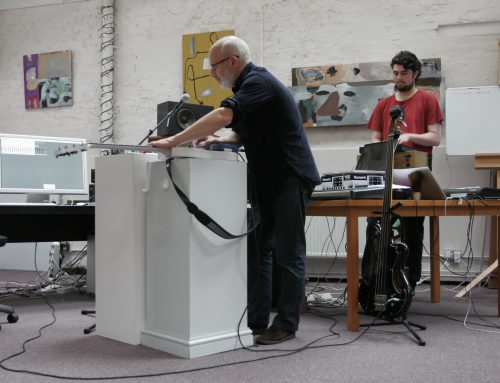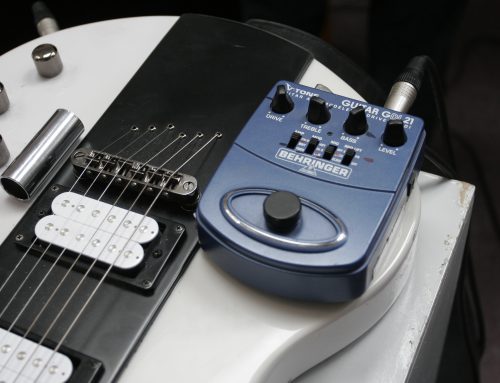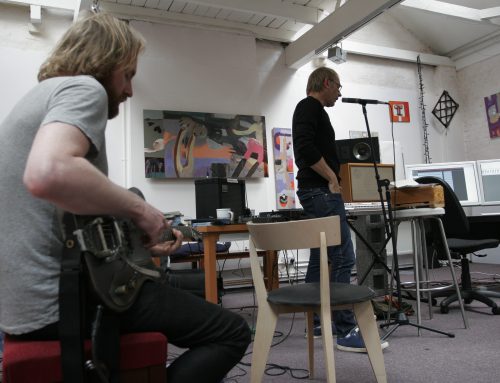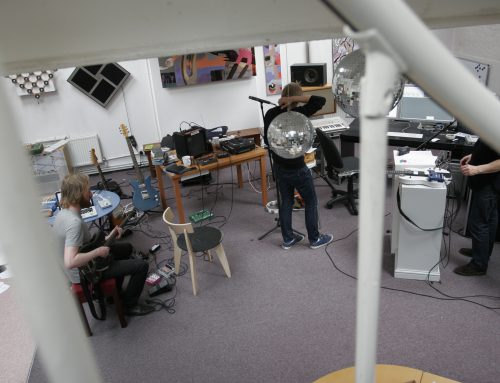In Part 2, Kelly explains the band’s attitude towards touring and recalls how they got signed to V2 Records.
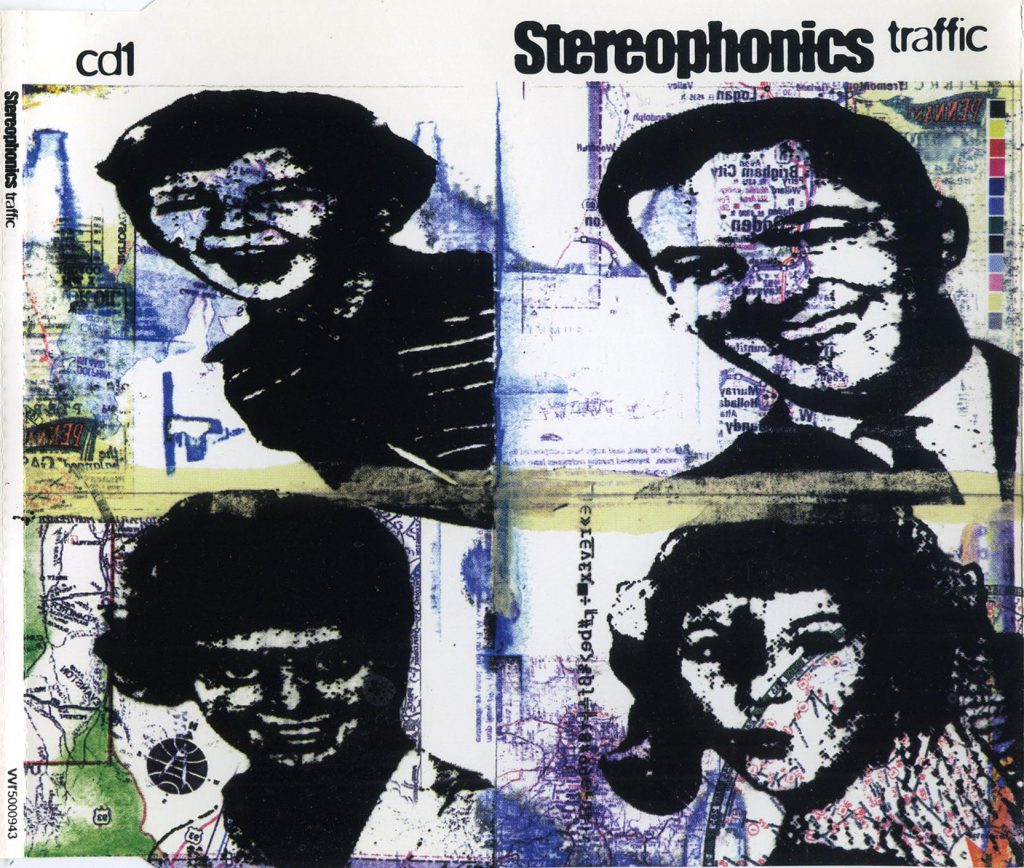
Cover of the 1997 Traffic EP
I read one interview with someone in the band and it came across that you really believed in going out and doing lots of gigs. You seem to have a work ethic and didn’t want to be one of those bands who become one hit wonders.
“We just always hated the clique in Camden. We used to go there and everyone would get signed who had the right friends, wore the right shirt, sounded like Morrissey, or whatever – but we were never into that kind of stuff. We were into bands like Free, Led Zeppelin, AC/DC, Credence Clearwater, Kinks. And my older brother; one minute he’d be playing Otis Reading the next minute the Sex Pistols, and these were all bands who had an attitude and a feel for stuff which sounded…
“It was real music and good music, and the way those bands did it was by doing the work. It wasn’t about being controversial and painting your hair green, it was about writing good songs and playing well live. As old fashioned as it sounds, that is what it was about, at the end of the day. Entertainment, or whatever you want to call it, is what it is and that’s the way we were brought up. We were always brought up to believe that people like Al Jolson or Charlie Chaplin were good entertainers and it doesn’t always have to be somebody who’s a wanker on stage trying to be cool. It can be somebody who gives something to others, not just giving themselves something and somebody thinking, ‘Hmmmm, pretty good.’
“A lot of British bands think they’re so big and they go out of the country and they’re nothing. And a lot of them think they’re stars just after they’ve signed, but we actually treated being signed as being sorted out from the shit and being put amongst the average and we knew we still had to shine through. That’s the attitude we will always have.
“People will not keep going towards somebody who just stands on the stage and doesn’t do anything for four years. The reason why Mick Jagger is still doing it, or Aerosmith, AC/DC or whoever, is because they actually do something on stage and people will always go back to see that because they’re entertainment and they have a good day watching it. Whether they go out and get drunk or not, they still get something back. They’re not going to get something back from somebody just farting about in a Parka all night long, unless they’ve got good songs.”
Do you have anyone in mind when you say that?
“I think Oasis is a good band! I was thinking more of people like the other Manchester bands like the Inspiral Carpets and that kind of bollocks, who do have really good songs, but only a limited amount of good songs, whereas Oasis have three albums worth of songs which would still go down well in a stadium if you played them with one guitar. That is a different ball game because it doesn’t matter what they do on stage; they can do whatever they want.”
Do you prefer small venues like this one tonight?
“I prefer some small venues. This one seems very live. Seems like a swimming pool, actually! I just hope the sound changes when the people come in. I do prefer watching bands in clubs. I always hated watching people in the NEC and stuff like that. It’s a crap atmosphere. I would love to have all of my favorite bands in places like Glasgow Barrowland which is a decent size, good sound and you are not to far away from anything. That’s the kind of venue I like.
“We did Earls Court which was like a joke. I was over here, Rich was over there somewhere – I couldn’t even see the fucker! As an experience it was great but as an atmosphere I don’t think it was. You’ve got to be something special to get an atmosphere in a place like that.”
As you go on are you going to try stadiums or smaller gigs?
“Obviously they’ve
“We didn’t want to be the next, average NME band; we wanted to be a band who could stick it out for a number of years, keep criticizing what we are doing, keep progressing and improving.
“I think as long as you can keep writing songs you’ll always move up. If it means you end up playing the NEC or whatever there’s nothing you can do about it. It saves work for yourself; it’s pointless playing Glasgow Barrowland eight nights a week when you can do it all in one go somewhere else. You’ve also got to go to other countries so it’s a vicious circle. But there again, the further you go, the better gear you get and the better sound you get as a result. Atmosphere wise I’ve got no idea; I never liked it personally.”
Are you getting a lot of support from the record company?
“The record company have been very good. The main reason we picked the record company was because we got offered priority. Every other major record company in Britain wanted to sign us at the same time. All the companies were bidding against each other which did us a lot of good, but it was a ridiculous situation. We came from nowhere and all the same people who turned us down six months before wanted to sign us!
“It was funny; I’ve still got the letters and they actually suggest throwing in the towel. People saying, ‘No, it’s not what we are looking for.’ But they were the same songs. We released ‘Tramps Vest’ and ‘Raymond’s Shop’ as its B-side and after I signed the publishing deal I still had letters back saying we don’t want ‘Raymond’s Shop’ as a song, when it was number 33 in the charts on the back of the single. It’s just a joke. They’re supposed to see through the bad-quality tapes.
“But V2 is just a very good working environment. Everybody’s got their own opinion and there’s no corporate boss looking over your shoulder. As much as it’s always mentioned that it is Branson’s label, he got shit all to do with it. I mean he’s got an airline but he doesn’t fly the planes, he’s just that icon which creates a good atmosphere and working environment and the people get into it. They’ve all got their opinions so it’s like a team. I think it is a really good situation and when you talk to all the other bands you can see how different it is.”
Is there pressure on you to succeed with it?
“Everybody seems to think we must be under a lot of pressure. We asked if we could go back in November and start writing and recording more songs, but they didn’t want us to. They wanted us to keep touring. We wanted to do the new songs because we felt that was important. And because they’re a new company everybody thought we might be under pressure that way, but it’s actually a benefit, if you think about it. They’ve got to prove to every other major label in Britain that they’re a company to be reckoned with and they’ve got to use us to do that. So it is us who are going to be pushed.
“It’s the same in America; they’ve got to prove themselves to every company in America. In France they’ve got to prove to everybody in France and we’re the first signing to all of them, so that means we’ve got to be used to do all of that. So were going to get established. We’re going to be the ones used to do that; we’re the Guinea pigs, and if it works out we get the benefit from that. If it doesn’t we’re still going to be around anyway because we’re going to keep writing, so hopefully its a good situation to be in. It has worked in Britain but obviously there’s a lot more we can do and so we just touring around a bit.”
So because V2 have got divisions in other countries you are doing the same kind of promotional touring in each one?
“We’ve been to France, Germany, America, Scandinavia and we go to Australia in February. We did two weeks in France and played one gig and sold 8000 records. From one gig, that’s unbelievable. And that isn’t even a song that’s on the radio. We’re selling 500 records a day and I really don’t know what that is all about. That’s just from talking, so when we do all the gigging it will be interesting to see.
“Germany is obviously a big, big place and we go there next week on a three week tour with Supergrass. We go to Italy, Spain and Germany for most of the time but the three week tour with Supergrass will be good for us because they have played gigs round about this size – five, six, 800 people – and if we can nick their fans first time in Europe, at least we’ve got a start. So, things are going really well. Its difficult being in a million places at once but, America doesn’t take place to the end of October so…”
I don’t suppose you’ve been back for about a year?
“Not often. You get the odd day off and we’ve had about three weeks off. We’ve got about 30 gigs to go and we stop on Christmas Eve and get four weeks off which I’m looking forward to.”
I bet. Spend some money!
“Yes, spend some money. Just get drunk for four weeks, I think. That’s all I want to do. We don’t really drink much on the road; just drink a lot of water while all the boys in the crew get pissed. When you have a day off you make up for time, but you realize so quickly that you’ve just got to pace yourself. It’s a difficult game, people don’t realize that, not glamorous at all. There is the glamour side but there’s a lot of other work to do.
“We didn’t realize it at all. You read gig guides when your growing up and think, ‘Ah, AC/DC are playing six dates, they’ve got the rest of the year off!’ You don’t realize they’re doing it in every other country in the fucking world! It’s really weird. You learn so quick and its so fucking obvious as well, but you don’t know when you are a kid.
“When they don’t see you and you are not gigging you are doing a video; when you are not doing a video you are recording; if you’re not recording you’re doing the next gig and if you’re not playing the next gig in Britain you are playing a big gig in Europe. It’s like when someone says ‘When do you finish touring?’ we say, ‘We don’t.’ They say, ‘When’s your next tour?’, ‘After this one!’
“It’s always the same. I’m not grumbling; I’ve waited 10 years to do it, but it isn’t sex drugs and rock and roll all the time, it’s not about that, it’s stress, drugs and rock and roll.”
It must make looking back to the earlier days in the band being a bit surreal. What sort of setup did you have? Did you have to have a couple of PA boxes?
“We used to have a power amp that would send out 200 Watts a side, a mixing desk, two rounds of speakers and a Shure SM58 for vocals. We didn’t have any monitors. I had the same Peavey from when I was 12 years old and I still use exactly the same one. We’ve now got a combo but it’s more or less exactly the same. We’ve always played in such a way that its compact and then somebody just amplifies it.”
Did you pile it in the back of a Ford Transit?
“Yeah, we had a Yellow Maestro van – an old AA Van – and we were in the back of one of those with all the gear. There were two seats so one of us had to sit in the back with our legs over the amps and we went back and forth to London.
“We used to work until 12, pack the van by two, drive to London, which would take about three-and-a-half hours. Get there by about half five. Do a sound check in Camden, wait until half 10 to go on, do our gig for 45 minutes, sort our gear out and into the van, drive home, get in about five or six in the morning and then go back to work at eight. And it was like, ‘Why the fuck are we doing this?’
“We did this so often. We really loved going to London because in London you can play all your own songs; you don’t have to do any cover versions. We just liked doing our own stuff.”
How long were you going down to London for?
“I think, on and off, about a year and a half. Just playing all the venues in Camden. When we started off we were told we had to bring our own coach of 50 people and rounding them up was a fucking nightmare. For three gigs we were borrowing money to hire the bus, then you realize that they only want them there for the beer!
“So then you tell them over the phone that you are going to do it and just turn up to do the gig. If you play well enough they’ll have you back anyway. So we just used to do that.
“It didn’t click until about a year-and-a-half ago that we should get a manager. We used to do it all ourselves. Phoning all the record companies, doing all the posters and everything and you get stressed out doing that. We got conned a few times. People looking for money who weren’t going to do anything – just wanting something for nothing. And then you realize that you should be the one that’s looking for them, not them for you. That you should put an ad in for yourself and then you can pick and choose which one you want. So we started advertizing for a manager.
“We found one who got us all the gigs in London. Basically he was a promoter. Then we were offered a gig to support Catatonia in our home town. It was like a splash tour. There were headline bands which were signed and smaller bands supporting, and one night a guy called John Brand, who was doing a music seminar there, saw us. He had produced The Cult, Aztec Camera, Waterboys and stuff like that, but he’s turned to management now. He saw us, really liked us and he was off. He approached us said he really like the band and he’d really like to manage us.
“The next week we played the Borderline in London and there were two producers there. They were freelance, had never done a stitch, just worked around studios trying to learn the game. They were Marshall Bird and Steve Bush. They came up to us after and offered to do some demos free in Battery studios in London. They had some down time there and knew they’d be able to fit us in.
“We thought it was bullshit because so many people come up to you after gigs. We didn’t take it seriously but they phoned up later and said ‘We are serious,’ so we did those demos. We recorded ‘Thousand Trees’ and ‘Check My Eyes for Holes’, which is the same version as on the album. ‘Tramp’s Vest’ was a demo. There were three demos on the album – Chaplin was a demo.
“We recorded six songs before we actually got signed. John took those tapes around, just for opinion, because he knew people in the business. And then everybody wanted to sign the band from those songs.
“I think it was him taking it to the right people and the quality shining through the songs, which makes it easier to listen to. A&R are supposed to listen to shit, but they don’t, obviously. I’ve been given so many tapes by kids since I’ve been signed and I realize what the labels go through, but they do get paid for it! But I think it was more to do with who John knew, us doing the demos in the right time right place and having the right kind of sounding tapes.”
That took a load of pressure off you?
“John was a really good manager. His plan was for us to not do any gigs in London and drag all the A&R people down to Wales. So we had 35 A&R people in a club in Wales. Every A&R person from all the majors in the same fucking club to see the band! It was at this place called the Filling Station in Newport. It was really funny situation because they must have all passed each other on the motorway! It was that kind of situation.
“And they all wanted to sign the band. We went through two months of talking contracts with solicitors and loads of different stuff which we totally didn’t have a clue about and we just signed to V2, which was a big risk because there was only two of them [personnel at the label, presumably – Ed] at the time. We realized that they could get set up pretty quickly, so that was it, really. It was a mad month. We changed our name to Stereophonics the same night as that that gig as well.”
What were you called before?
“The Tragic Love Company. We actually changed it that same night. And we weren’t actually going to turn up for the gig because we thought it would be shit and Wales were playing Ireland on the telly and we really wanted to go out and get pissed. We thought, ‘Fuck that! We’re not into playing in our own home town because nobody’s going to be here.’ But it was packed. He had got everybody there – really strange. We thought ‘What if we didn’t turn up for that gig? Would it have happened?”
That’s the sort of story you read about and think that it couldn’t possibly happen!
“I know. It is totally bizarre. Then we realized after that shit that if you are good enough and you write good songs then they will get found. It’s not a case of you looking all the time. If you are good enough you do get found.
“We always used to send three song demos away to record companies then we decided to…. We had 10 songs recorded on one of those Fostex four-track things which we used to rehearsed with, and we decided to just send one song a week. So they’d realized that we were constant, prolific, writing, keeping on doing it, good or bad. They knew we were doing a different song every week. So we actually noted them ‘Single 1’ this week, ‘Single 2’ and so on…
“And we used to send them wrapped in Christmas paper in crisp boxes, trainers, Chinese takeaway cartons, cake boxes – anything just to get somebody to open it. And we didn’t have any letters back, nothing, after all the effort and money we spent on it.
“My parents used to watch me with 15 Chinese takeaway cartons putting tapes and letters in them and looked at me like I was a fuckin’ alien or something. Then finally, when you get a bit of recognition and somebody actually spots you it is in your home town! That was totally ironic after all the years we’d been doing it.
“Those kinds of experiences build you as a character and as a band. We were used to playing empty rooms but we still played to the bar staff. There’s still somebody there having a crack even as you are doing it. You only ever want to do it to say to people, ‘Fuck off, I did it!’ It’s the only reason. You forget, but that was the goal. Then when you get there you want to do something more. Once your album is top 10, what’s you next ambition? What do you do then? Well, you want the next one to go top 5. It keeps on snowballing and it always keeps you on your toes. Once you get one place, you think, ‘Fucking hell, what do I do now? Better get somewhere else.’ That’s us, that’s our life!” TF
Part 1 of our interview with Kelly can be found here: Part 1

